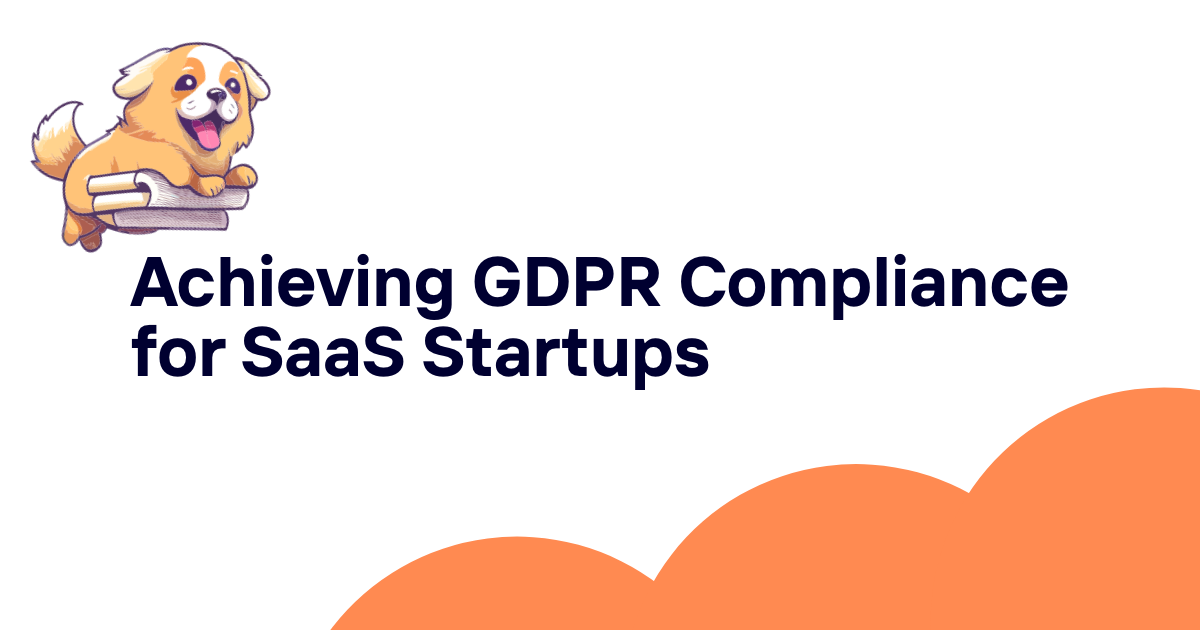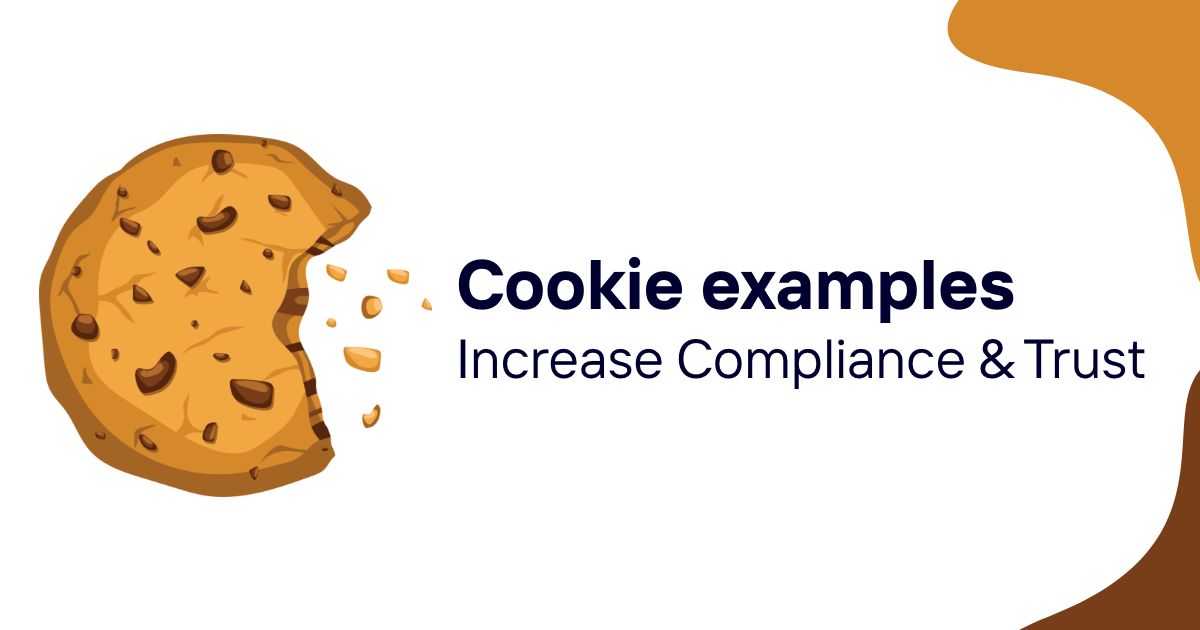Introduction
In today's digital landscape, where data is the lifeblood of businesses, ensuring robust data protection and privacy measures is paramount. Software as a Service (SaaS) startups, in particular, are entrusted with vast amounts of user data, making compliance with regulations like the General Data Protection Regulation (GDPR) an absolute necessity. This blog post aims to provide a comprehensive guide for SaaS startups navigating the intricate world of GDPR compliance, empowering them to safeguard user privacy while fostering trust and credibility.
Table of Contents
- Understanding the GDPR: Laying the Foundation
- Why GDPR Compliance Matters for SaaS Startups
- Key Principles and Requirements of the GDPR
- Implementing GDPR Compliance: A Step-by-Step Approach
- Best Practices for Ongoing GDPR Compliance
- Conclusion
Understanding the GDPR: Laying the Foundation
The GDPR, enacted by the European Union (EU) in 2018, is a comprehensive set of regulations aimed at protecting the personal data of individuals within the EU and the European Economic Area (EEA). It applies to all organizations, regardless of their location, that process or handle the personal data of EU residents. The GDPR defines personal data as any information that can directly or indirectly identify an individual, such as names, email addresses, IP addresses, and biometric data.
Why GDPR Compliance Matters for SaaS Startups
GDPR compliance is not just a legal obligation for SaaS startups; it is a strategic imperative that can have far-reaching implications for their business. Here are some compelling reasons why GDPR compliance should be a top priority:
-
Avoiding Hefty Fines and Penalties: Non-compliance with the GDPR can result in substantial fines, up to €20 million or 4% of a company's global annual revenue, whichever is higher. For startups with limited resources, such fines could be crippling.
-
Building Customer Trust: By demonstrating a commitment to data protection and privacy, SaaS startups can foster trust among their customers. In an era where data breaches and privacy concerns are prevalent, customers are more likely to choose providers that prioritize their data security.
-
Competitive Advantage: As more businesses prioritize GDPR compliance, those that fail to do so may find themselves at a competitive disadvantage. Compliant SaaS startups can leverage their commitment to data protection as a selling point.
-
Facilitating International Growth: The GDPR has a global reach, applying to any organization that processes the personal data of EU residents. By achieving compliance early on, SaaS startups can position themselves for seamless international expansion.
Key Principles and Requirements of the GDPR
To ensure effective compliance, SaaS startups must understand and adhere to the key principles and requirements of the GDPR.
Data Subject Rights
The GDPR grants individuals (data subjects) several rights regarding their personal data, including:
- Right to Access: Data subjects have the right to obtain confirmation as to whether their personal data is being processed and, if so, access that data.
- Right to Rectification: Data subjects can request the correction of inaccurate or incomplete personal data.
- Right to Erasure (Right to be Forgotten): Under certain circumstances, data subjects can demand the erasure of their personal data.
- Right to Data Portability: Data subjects have the right to receive their personal data in a structured, commonly used, and machine-readable format and to transmit that data to another controller.
Lawful Processing of Personal Data
The GDPR outlines six legal bases for processing personal data, which include:
- Consent
- Contract
- Legal obligation
- Vital interests
- Public task
- Legitimate interests
SaaS startups must identify the appropriate legal basis for each processing activity and ensure that their data processing practices align with these bases.
Data Protection by Design and by Default
The GDPR requires organizations to implement data protection measures from the outset of any system or process that handles personal data. This principle, known as "data protection by design and by default," aims to ensure that privacy and data protection are integral components of product and service development.
Data Breach Notification
In the event of a personal data breach, the GDPR mandates that organizations notify the supervisory authority within 72 hours of becoming aware of the breach, unless the breach is unlikely to result in a risk to the rights and freedoms of individuals. In cases where the breach poses a high risk, the affected data subjects must also be notified without undue delay.
Implementing GDPR Compliance: A Step-by-Step Approach
Achieving GDPR compliance is a multi-faceted process that requires careful planning and execution. Here is a step-by-step approach that SaaS startups can follow:
Conducting a Data Audit
The first step in implementing GDPR compliance is to conduct a comprehensive data audit. This involves identifying all the personal data your startup collects, processes, and stores, as well as the purpose for which it is collected and the legal basis for processing it. This audit will provide a clear understanding of your data landscape and help you identify potential areas of non-compliance.
Reviewing and Updating Privacy Policies
Once you have a clear understanding of your data landscape, review and update your privacy policies to ensure they are GDPR-compliant. Your privacy policies should clearly outline the types of personal data you collect, the purposes for which it is collected, the legal bases for processing, and the rights of data subjects.
Obtaining Explicit Consent
If you rely on consent as the legal basis for processing personal data, ensure that you obtain explicit, freely given, and informed consent from data subjects. This means providing clear and concise information about the data processing activities and allowing individuals to opt-in or opt-out easily.
Implementing Technical and Organizational Measures
The GDPR requires organizations to implement appropriate technical and organizational measures to ensure the security of personal data. This includes measures such as:
- Encryption: Implementing encryption for data at rest and in transit.
- Access Controls: Restricting access to personal data to only those who need it for legitimate purposes.
- Data Minimization: Collecting and processing only the personal data that is necessary for the stated purposes.
- Pseudonymization and Anonymization: Using techniques such as pseudonymization and anonymization to protect personal data.
- Regular Security Audits: Conducting regular security audits to identify and address potential vulnerabilities.
Establishing a Data Breach Response Plan
As mentioned earlier, the GDPR requires organizations to notify supervisory authorities and affected individuals in the event of a personal data breach. Therefore, it is crucial to establish a comprehensive data breach response plan that outlines the steps to be taken in such situations, including incident response, notification procedures, and mitigation strategies.
Appointing a Data Protection Officer (DPO)
Depending on the nature of your data processing activities and the size of your organization, you may be required to appoint a Data Protection Officer (DPO). The DPO is responsible for monitoring your organization's compliance with the GDPR, providing advice and guidance, and serving as the primary contact point for supervisory authorities and data subjects.
Maintaining Comprehensive Documentation
The GDPR places a strong emphasis on documentation and record-keeping. SaaS startups must maintain comprehensive documentation of their data processing activities, including the types of personal data processed, the purposes of processing, the legal bases for processing, and the technical and organizational measures implemented to ensure data protection.
Best Practices for Ongoing GDPR Compliance
Achieving GDPR compliance is not a one-time endeavor; it requires ongoing efforts and vigilance. Here are some best practices that SaaS startups can adopt to maintain compliance:
Continuous Monitoring and Auditing
Regularly monitor and audit your data processing activities, policies, and procedures to ensure ongoing compliance with the GDPR. This may involve conducting periodic data protection impact assessments (DPIAs) and implementing any necessary corrective actions.
Employee Training and Awareness
Ensure that all employees, including new hires, receive comprehensive training on data protection and privacy practices, as well as the GDPR requirements. This will help foster a culture of compliance and reduce the risk of inadvertent data breaches or non-compliance.
Third-Party Vendor Management
If your SaaS startup relies on third-party vendors or processors for data processing activities, ensure that you have appropriate contractual agreements in place that outline their obligations and responsibilities under the GDPR. Regularly review and monitor these vendors to ensure ongoing compliance.
Staying Updated on Regulatory Changes
Data protection regulations are not static; they may be subject to updates and amendments over time. Stay informed about any changes or updates to the GDPR and other relevant regulations, and promptly adapt your policies and procedures accordingly.
Conclusion
GDPR compliance is a critical aspect of operating a SaaS startup in today's data-driven landscape. By adhering to the principles and requirements outlined in this guide, SaaS startups can not only avoid hefty fines and penalties but also foster trust among their customers, gain a competitive advantage, and position themselves for sustainable growth. Implementing a comprehensive GDPR compliance strategy may require significant effort and resources, but the long-term benefits it brings in terms of data protection, customer loyalty, and business reputation make it a worthwhile investment.
Remember, GDPR compliance is an ongoing journey, and it is essential to remain vigilant, continuously monitor and audit your data processing activities, and stay updated on regulatory changes. By prioritizing data protection and privacy, SaaS startups can not only meet their legal obligations but also demonstrate their commitment to ethical and responsible data practices, solidifying their position as trustworthy and reputable providers in the ever-evolving digital landscape.
ComplyDog is the perfect companion for B2B founders looking to punch up to win enterprise customers. Handle data subject requests, automate DPA signature requests, and answer common compliance questions from prospects. Start your 14 day trial today.
















